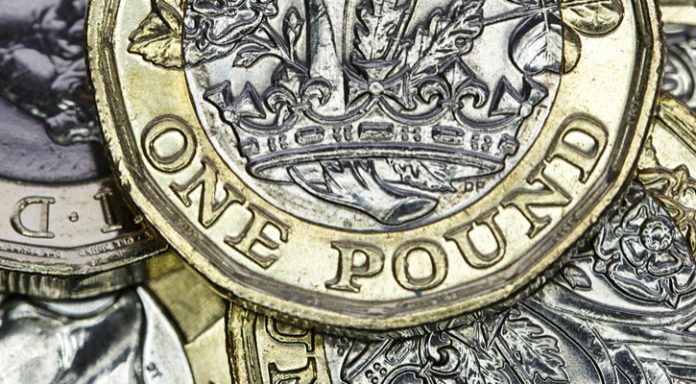- Pound (GBP) eases back below €1.17 after gains on Thursday
- GDP, manufacturing and industrial production data due
- Euro (EUR) falls on rumors ECB could expand asset purchase programme
- German inflation data
The Pound Euro (GBP/EUR) exchange rate is edging lower after solid gains in the previous session. The pair settled +0.5% higher on Thursday at €1.1704 towards the high of the day. The pair is on track to finish the week 0.08% higher, after two straight weeks of decline. At 05:45 UTC, GBP/EUR trades -0.04% at €1.1699.
The pound recovered some lost ground from Wednesday and its 10-week low. The pair had tumbled after Prime Minister Boris Johnson announced tougher COVID restrictions to stem the spread of Omicron.
The pound remains under pressure as the move is expected to slow the economic recovery and encourage the Bank of England to adopt a wait and see approach to tightening monetary policy. Before Omicron erupted it had been widely expected that the central bank would raise interest rates at the December meeting next week. This has now been pushed back and the BoE are now expected to raise interest rates in February.
Although recent data has showed a shift in consumer behaviour back towards spending on goods rather than services which could lift inflation higher than the already elevated 4.2%.
This week has been a quiet week for economic data. However that is set to change tomorrow with the release of UK GDP, manufacturing and industrial manufacturing. GDP is expected to grow 0.4% month on month in October, down from 0.6% the previous month.
The Euro tumbled lower on Thursday, but is stabilizing today on reports that the ECB could boost its asset purchase programme. The ECB would do this on a limited and temporary basis according to the rumours. The central bank is due to meet next week.
The move would be in complete divergence to the Fed or BoE who are looking to tighten monetary policy as the next move.
On the data front, investors will look towards the release of German inflation data. Analysts expect consumer prices to confirm the preliminary reading of 5.2% a 29 year high as a combination of supply chain bottlenecks and elevated energy prices





